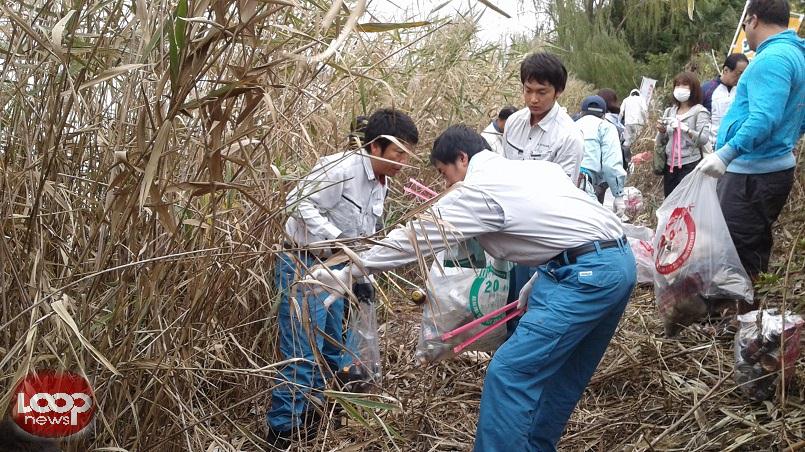
Engaging the community in clean environment activities is effective, as proven in Japan.
Citizens of Tokyo spend about two hours every weekend to clean up along the banks of the Arakawa River, which empties into the Pacific Ocean.
Pacific and Caribbean journalists, attending a program organised by the Association for Promotion of International Cooperation and the Foreign Press Center Japan, witnessed and participated in a clean-a-thon along the Arakawa River located within the vicinity of Tokyo city.
The Arakawa River Clean-Aid Action is an environmental initiative that is organised by non-government organisation (NGO) Arakawa Clean-aid Forum.
Participants are mainly citizens, students, business organisations and companies, including construction companies and financial institutions, as well as various types of industries.
Staff from Clean Aid provide support by preparing the venue and the know-how for cleaning the river bank, with approval from the Adachi Ward administrative body.
Clean Aid supervisor Natsuyuki Fujimori explained that by organising such events, they receive a commission from the municipality, which is determined by the number of participants.
Fujimori said the clean-up program has been a success, with about 159 locations cleaned in 2015.
This saw 60,000 plastic bottles collected, 484 items of bulk wastes, 5 602 bags collected and 10,000 people participated.
Fujimori said they have found that the trash collected is mostly industrial wastes and rubbish from drainage systems and from upstream.
He said they’re now collaborating with other NGOs to organise a clean-up as well as build up a network.
At the end of every clean-a-thon, after sorting out the garbage, they’re able to collect data on how much rubbish were collected on the day and what type and percentage of garbage.
The data is collected by organisation JEAN, which is involved in ocean clean-up, and is shared internationally.
Data is also sent to the Ocean Conservancy that organises the international coastal clean-up campaign.
Clean Aid creates awareness by giving a small talk to participants after the clean-up and it also does posters at train stations, which are sent to organisations as well.
This type of initiative could also be practiced in Port Moresby on a regular basis.
Currently, clean-ups are only done when oraganised during environment celebrations or big events.
If PNG emulates Japan’s model, people will start taking responsibility and work together to achieve a clean environment.
